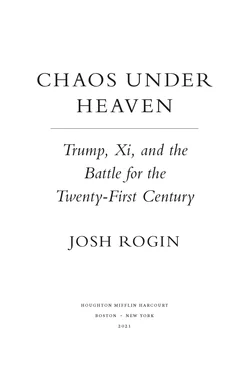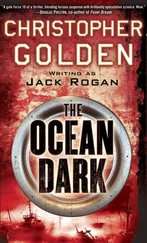Once Beijing realized that it could obtain US investments much more easily by listing Chinese companies on less scrupulous markets and then having the index providers bless these companies by adding them to their lists, it pushed that strategy with all its might—and the index providers played along. For example, the world’s largest index provider, MSCI, has been steadily increasing its holdings of Chinese assets, reportedly “after it came under heavy pressure by the Chinese government.” MSCI quickly began adding Chinese firms to its international index listings, particularly emerging market indexes, which had the effect of steering billions of US dollars toward those Chinese firms.
Large investment vehicles like exchange-traded funds and mutual funds often track indexes like MSCI. This means that, whenever the index added Chinese firms, these large funds followed suit and took them on as well. Large institutional investors like pension funds and university endowments stocked up on lhese exchange-traded funds and mutual funds, often investing in them passively, which resulted in them taking on the risk of bad-actor Chinese firms. Investing in Chinese companies that were sanctioned by the US government, aiding the Chinese military, or contributing to human rights abuses would normally be seen as very risky. But when the index providers endorsed these firms, US investors’ dollars flowed to them.
One implication of this new, surreptitious flow of US investment toward Chinese companies was that it made the Trump administration’s trade negotiation strategy less effective than it might have been otherwise. MSCI quadrupled its mainland Chinese holdings in 2019, which sent about $80 billion of US cash into the struggling Chinese economy right as the Trump administration was trying to apply pressure on Beijing to make a trade deal. These Chinese firms never had to list on the US exchanges but were able to raise cash from the US capital markets through this backdoor method.
But there were even greater and more insidious implications as well. US investment funds worth nearly $14 trillion follow the MSCI indexes or use them as yardsticks for their investment decisions. That means asset managers all over the country are compelled to increase their holdings of Chinese stocks and bonds when MSCI does it. Millions of Americans, without doing anything, are all of a sudden betting on Chinese companies with their pension funds, mutual funds, and exchange-traded funds.
All the big index providers were doing it. The Bloomberg Barclays Global Aggregate Bond Index in 2019 began a twenty-month plan to support 364 Chinese firms by directing an estimated $150 billion into their bond offerings, including 159 companies controlled directly by the Chinese government. Pension and retirement funds all over the country that track these indexes passively were putting millions of Americans’ financial futures in the hands of these Chinese companies.
What’s worse, the companies the indexes were shoveling money into included companies that build weapons and ships for the PLA, companies that stood accused of cyber hacking, firms that are complicit in mass atrocities, and firms that are already sanctioned by the US government. The Wall Street firms weren’t just betting our money on China; they also were helping Beijing fund China’s expansion, which undermined the entire US government strategy to compete with Beijing and to maintain America’s technological and economic primacy.
American investment firms were not disclosing this material risk to their investors, much less telling them what the impact of their investments was. At the same time, they were making it very difficult for the US government to undo the damage. Once millions of Americans were invested in bad-actor Chinese firms, there would be a huge constituency inside the United States pushing against any punishment of those firms.
“While we thought we understood the scope and activities of the active ‘China lobby’ in the United States,” Roger Robinson, the former chairman of the U.S.-China Economic and Security Review Commission, told me, “little did we know that China was in the process of recruiting well over 100 million American retail investors with a vested financial interest in opposing sanctions against Beijing for fear it could hurt their portfolios.” Robinson wasn’t in government anymore, but nevertheless, he decided to do something about it. And he was not alone.
The Opening Salvo
When Robinson talked about economic warfare, he knew whereof he spoke. The son of a senior FBI counterintelligence official, he had started his career as a Wall Street banker, but he made his name as a cold warrior. As a thirty-two-year-old head of international economic affairs at the National Security Council under President Ronald Reagan in 1982, Robinson was among the first to identify the vulnerability of the hard currency cash flow of the Soviet Union and then come up with a plan to exploit that vulnerability. Many would argue that the secret economic and financial strategy waged against the Kremlin centering on constraining its hard currency cash flow and access to Western credit was ultimately responsible for the collapse of the Soviet empire.
Before working in the Reagan administration, Robinson had been the vice president heading the Soviet and Eastern European division of Chase Manhattan Bank. He served for two and a half years as a personal assistant to then-Chase chairman David Rockefeller. On April 1, 1981, he had coauthored an article in the New York Times entitled “Europe’s Big Gamble on Soviet Gas,” warning about the perils of Western Europe’s dependency on Soviet gas and warning that the Siberian pipeline would double the USSR’s annual revenues. Ronald Reagan used this argument as a basis for his intervention on the issue, which became known as the Siberian pipeline dispute. He brought in Robinson to work the issue.
During the Trump administration, Robinson—by now a private citizen with a small research and risk management consulting firm—had been working behind the scenes to wage a new war against the Chinese corporate bad-actor companies trying to attract the money of average Americans and those on Wall Street helping them for fees. (The Trump administration looked into this issue in 2017, when Robert Spalding, the short-tenured NSC official, commissioned a quiet study on China’s presence in US capital markets. Among its findings was that China had a much more expansive footprint inside the US capital markets than anyone understood, replete with bad actors. By the time the study was complete, Spalding had left the administration, and for still unclear reasons, the report never saw the light of day.)
Separately, over the course of 2017 and 2018, Robinson also was conducting an intensive research effort into the national security and human rights implications of China’s expanding corporate presence in the US capital markets. In the fall of 2018, he began quietly and informally briefing officials, lawmakers, and journalists around Washington, hoping to instill in them the same outrage that he felt about the uses to which American dollars were being put in China. Robinson was at the nexus of two worlds, the national security community and Wall Street—and he was determined to connect them.
To help with these briefings, Robinson produced a presentation laying out the issue. It showed that if MSCI instituted its plans, millions of Americans would be passively investing in bad-actor Chinese companies, including China Shipbuilding Industry Corporation (which supplied the PLA Navy), the Aviation Industry Corporation of China (which supplied the Chinese air force and manufactured advanced weapons such as air-to-air missiles), China Unicom (which had been accused of cyber hacking and spying), and Hikvision (which produced the AI cameras that tracked Uyghurs in Xinjiang before they were arrested and sent to camps).
Читать дальше











